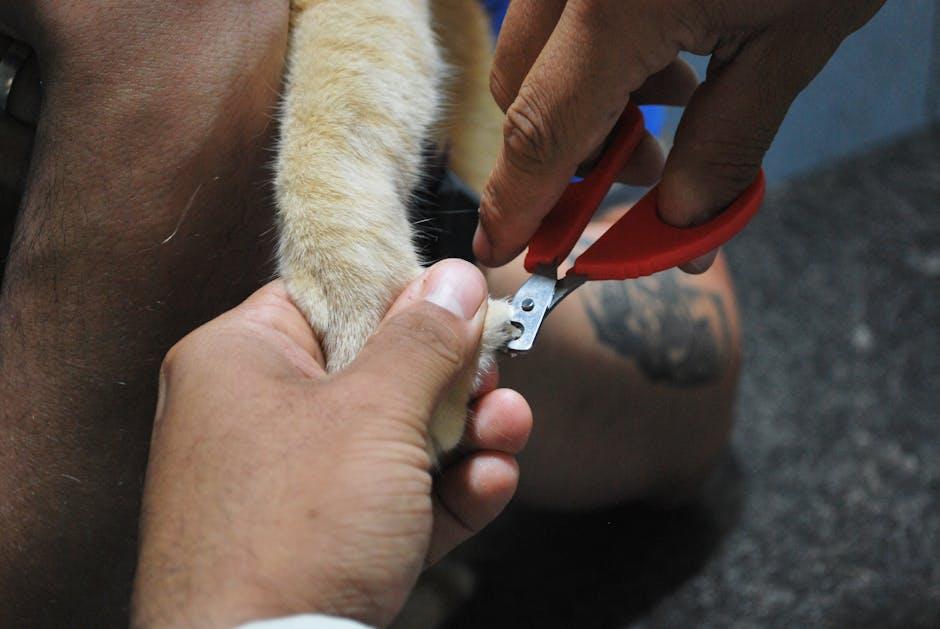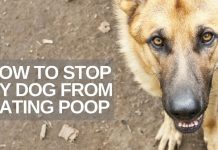Welcoming a new puppy into your home is an exciting and joyful experience, filled with wagging tails, playful antics, and endless cuddles. As a new pet owner, you’re embarking on a rewarding journey that will bring unconditional love and companionship. However, alongside the joy comes the responsibility of ensuring your furry friend grows up healthy and happy. In this guide, we’ll walk you through essential puppy health tips that every new pet owner should know. From vaccinations to nutrition and exercise, we’ll cover all the fundamental aspects of puppy care, helping you lay a strong foundation for your pup’s well-being. Let’s dive into the world of puppy health with warmth and care, setting the stage for a lifetime of wagging tails and joyful moments.
Understanding Your Puppys Nutritional Needs for Optimal Growth
As a new pet owner, understanding what goes into your puppy’s bowl is just as important as knowing when to feed them. Puppies grow rapidly, and their nutritional needs are vastly different from those of adult dogs. It’s essential to provide a diet that is rich in nutrients, ensuring they develop strong bones, healthy muscles, and a robust immune system. Here are some key components to consider when selecting the right food for your furry friend:
- Protein: Essential for growth and development, protein should be the cornerstone of your puppy’s diet. Look for high-quality sources like chicken, lamb, or fish.
- Fats: Healthy fats provide energy and support brain development. Omega-3 and Omega-6 fatty acids are particularly beneficial.
- Carbohydrates: While not as critical as proteins and fats, carbohydrates can supply necessary energy. Opt for whole grains like brown rice or oatmeal.
- Vitamins and Minerals: These are crucial for overall health. Ensure your puppy’s food contains calcium for bone development and antioxidants for immune support.
Consult your veterinarian to tailor your puppy’s diet to their specific breed, size, and health requirements. Remember, every puppy is unique, and what works for one may not work for another. With the right nutrition, your puppy will be well on their way to a happy, healthy life.
Creating a Safe and Stimulating Environment for Your New Furry Friend
When welcoming a new puppy into your home, it’s crucial to design a space that promotes both safety and mental stimulation. This environment will be the foundation for your puppy’s health and happiness. Start by puppy-proofing your home to prevent accidents and injuries. Ensure electrical cords are out of reach, secure any hazardous materials, and use baby gates to block off restricted areas. Additionally, keep small objects and plants that are toxic to dogs out of your puppy’s reach.
Beyond safety, providing a stimulating environment is essential for your puppy’s development. Consider incorporating the following elements into your puppy’s space:
- Interactive toys: Choose toys that challenge your puppy mentally, such as puzzle feeders or treat-dispensing toys.
- Variety of textures: Introduce different surfaces for your puppy to explore, like soft rugs, hardwood floors, or grass mats.
- Safe chewing options: Offer a range of chew toys to satisfy your puppy’s natural urge to gnaw and help with teething.
create a cozy spot where your puppy can retreat and feel secure. This could be a crate or a designated bed area, complete with soft blankets and a favorite toy. Remember, a well-thought-out environment not only keeps your puppy safe but also fosters their curiosity and growth, laying the groundwork for a happy, well-adjusted pet.

Building a Strong Foundation with Routine Vet Visits and Preventative Care
Establishing a regular schedule of veterinary visits is crucial for your puppy’s health and well-being. These visits ensure that your furry friend receives essential vaccinations, routine check-ups, and screenings that detect potential health issues early on. Regular vet appointments allow you to track your puppy’s growth and development, ensuring they are on the right path to a healthy adulthood.
Preventative care is not just about addressing problems as they arise but actively working to prevent them. Here are some key aspects to focus on:
- Vaccinations: Protect your puppy from common diseases by staying up-to-date with their vaccination schedule.
- Parasite Control: Regular treatments for fleas, ticks, and worms help keep your puppy safe and comfortable.
- Nutrition: A balanced diet tailored to your puppy’s breed and size supports their immune system and overall health.
By prioritizing these aspects of care, you’re not just investing in your puppy’s health today, but you’re also laying the groundwork for a lifetime of happiness and vitality. Remember, a proactive approach to your pet’s health is always the best strategy.
















